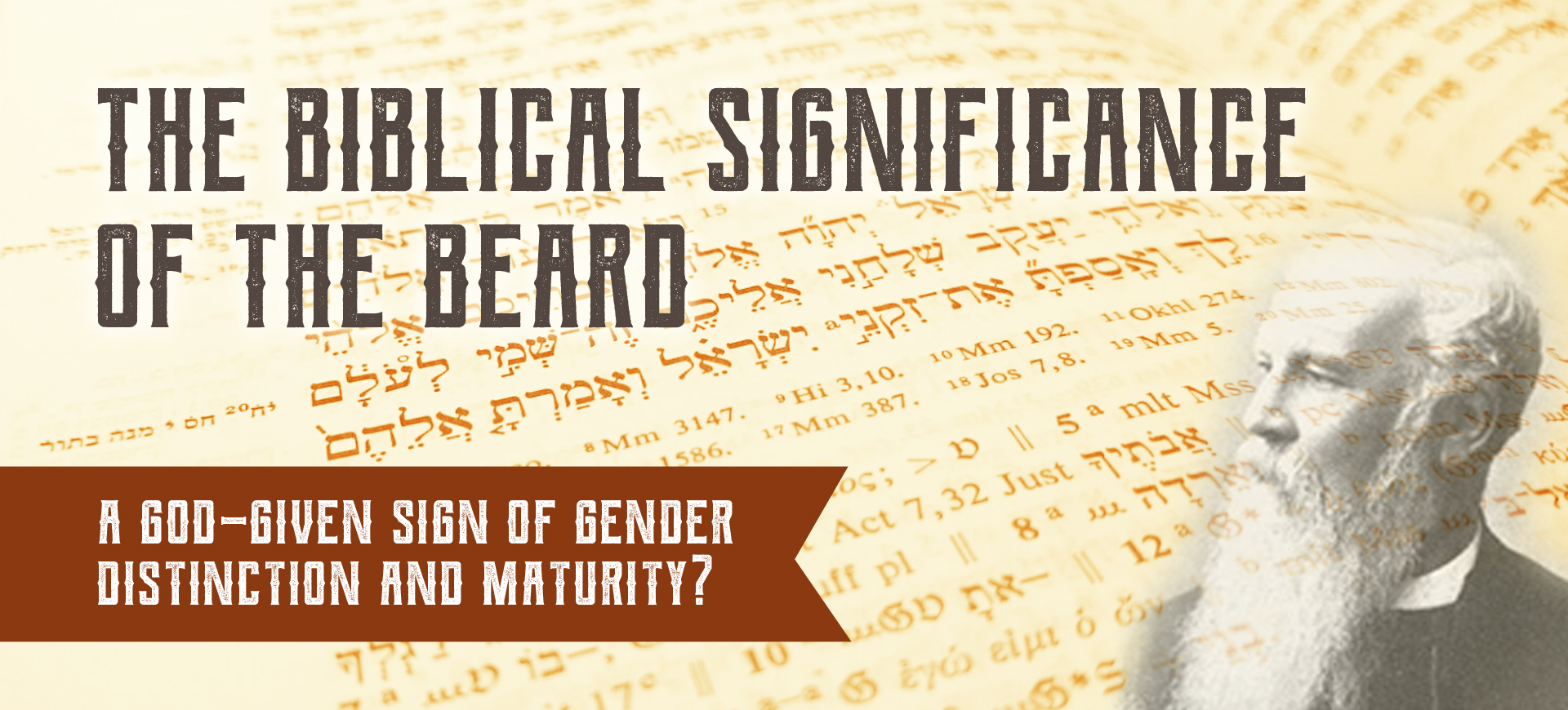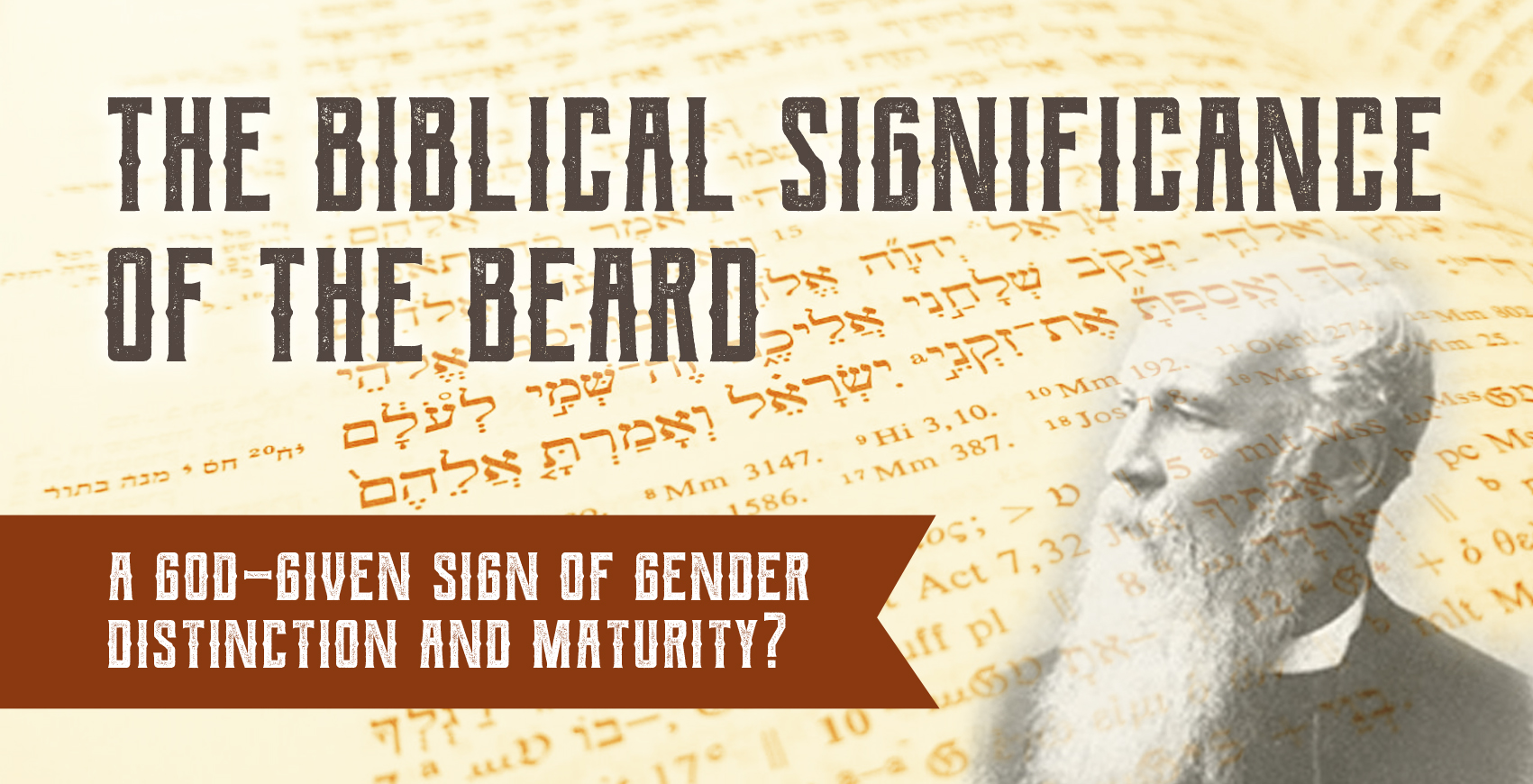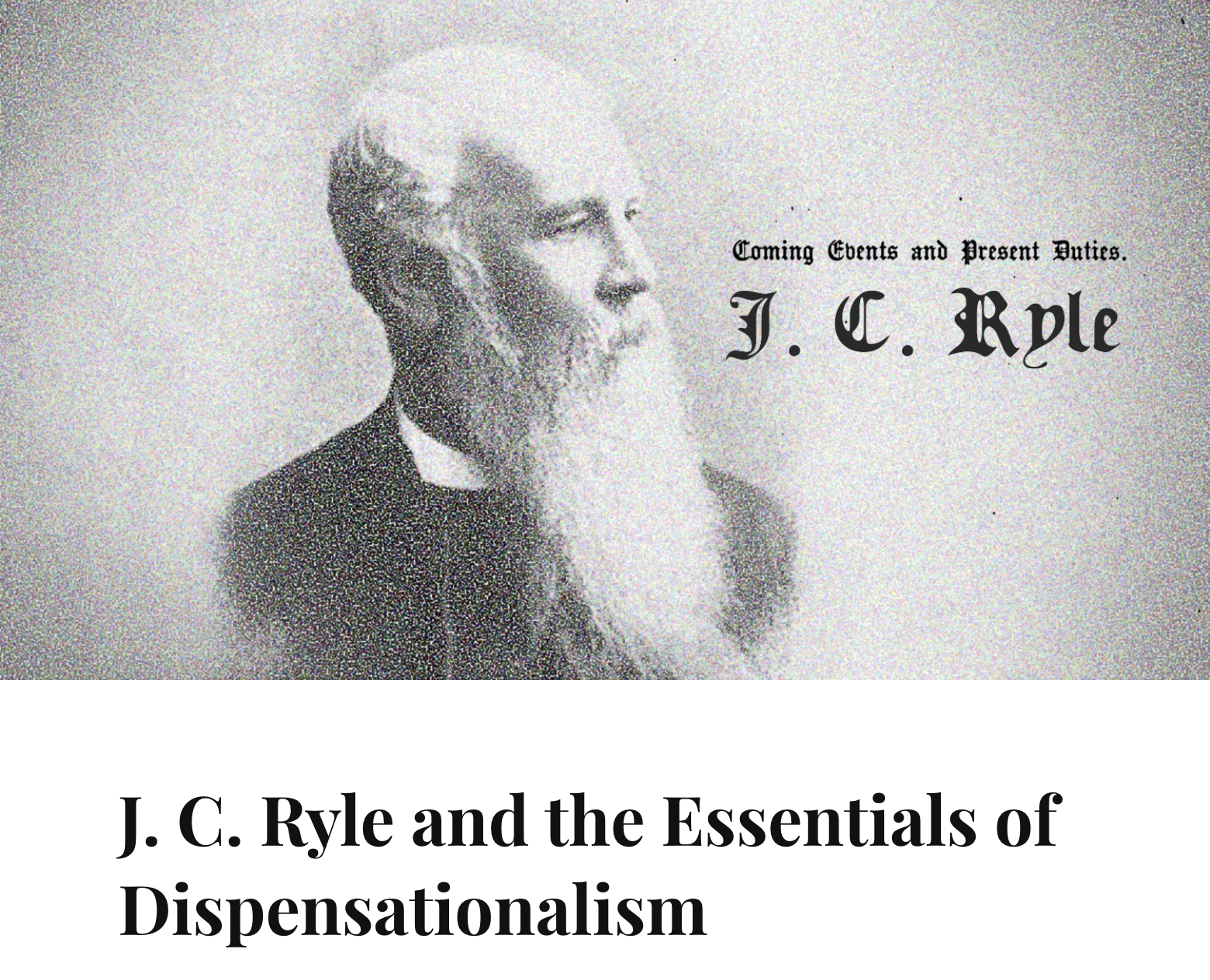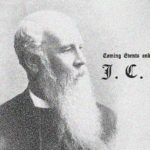PERSONAL NOTE: Every now and then I get comments from fellow Christians suggesting that it might be unsuitable for Christian men to have beards. For the purpose of publicly explaining my views on the matter, below is the contents of a seminary research paper I have written on the subject, for which I got very encouraging feedback from my professor. Just to be clear, these are simply my own personal views (even though I certainly believe them to be biblically based) and do NOT represent any official view of the church where I have the privilege to serve. Neither do I seek to make others agree with me, rather I simply want to clearly express my own views on this minor topic, for the purpose of helping others understand my biblical reasoning on the matter, even if they end up disagreeing with my conclusions. Anyway, below is the article, which is obviously a little longer than a normal blog post, due to it being a research paper. I hope it will be helpful for others thinking through the issues involved in this subject.

Introduction
In the well-known fictional work, The Screwtape Letters by C. S. Lewis, there is a somewhat interesting remark made by the senior Demon ‘screwtape’ as he is instructing the younger demon on how to entice humans to sin,
“Thus we have now for many centuries triumphed over nature to the extent of making certain secondary characteristics of the male (such as the beard) disagreeable to nearly all the females–and there is more in that than you might suppose.”[1]
Was C. S. Lewis actually on to something with this strange comment by this fictional demon? Is there actually a God given purpose for the ‘secondary characteristics of the male’, the beard in particular? Does the suppression of this natural symbol of manliness actually signify something more than one might first suppose? Even more specifically, is it completely foolish to even suggest that there might be good biblical reasons for men to have beards? In fact, could the beard even be considered a sign of gender distinction and maturity?
Many would consider beards and shaving as simply whims of the culture and fashion trends, without any deeper meaning throughout history. However, as shown by historian Christopher Oldstone-Moore in his work on the history of facial hair, this is not true at all. Rather, the change from beards to clean shaven faces throughout history have most often been connected to deeper beliefs in relation religion, to what constitutes manhood, and how gender distinctions are to be viewed.[2]
When it comes to the biblical example and the witness of church history, the question of beards and their significance becomes intriguing indeed, since there appears to be a stark contrast between the common practice amongst Christians today, where many churches expect the men to be clean-shaven (especially the pastors), compared to the pattern in Scripture and throughout church history (in particular the early church and the reformation period), where the beard has been esteemed as a sign of manhood[3] and maturity.[4]
Is there a distinctively Christian way of looking at the subject of beards? Or is it simply something where one is supposed to follow the whims of the surrounding culture? In other words, is there a biblical case to be made for men to preferably have beards, or is this aspect of human appearance something where the biblical worldview has no part to play? The scarcity of any modern material discussing this topic from a distinctively Christian perspective shows how neglected this subject has become,[5] so much so that even to suggest thinking about the issue of beards from a Christian worldview will cause many believers to laugh at the thought. This stands in contrast to many of the early church fathers, who spoke strongly for the manliness of the beard, and warned against the practice of men shaving their beards and thus having a more feminine appearance.[6] Notably, even the 4th Council of Carthage (A.D. 398) gave a clear prohibition against the shaving of the beard, stating that, “The clergyman shall not let his hair grow, neither shall he remove his beard.”[7]
The purpose of this article is to present a distinctively Christian case for understanding the beard as a God-given sign of gender distinction and maturity, and why the wearing of the beard is the preferred way for men, Bible-believing Christians in particular. The three categories of argument are as follow: (1) the beard is created by God, (2) the beard is esteemed in Scripture, (3) the beard is confirmed in church history.
1. Created by God
To have a truly Christian worldview, one needs to always begin with God. In relation to anthropology in particular, it becomes crucial that one rightly understand the significance of God creating man in his own image. In studying anthropology, Christians need to keep on asking themselves, are there still aspects of non-Christian thinking in relation to certain aspects of the common Christian understanding of man?[8] In regard to the topic at hand, the Christian man ought to evaluate the arguments, to see what accords with God’s created order, the biblical witness, and the testimony of the church, and then act in accordance to one’s convictions.[9] Thus, the foundation for any discussion in regard to the significance of the beard, needs to begin with this foundational truth, that God is the creator of man. He is the designer of the human body, and he has formed both man and woman to reflect his glory. God has also created men and women with unique features, so that even though they are both created in his image, they yet have aspects which are different from each other. God is the one who created gender, designing men to be men, and women to be women.[10] Most of secular discussion about gender distinctions, focuses mainly on sexual organs, making it sound like nothing else differentiates men and women. However, Bible believing Christians certainly know there is much more than just sexual organs that are the difference, and that God has called men to appear in a distinctively manly appearance, and women to adorn themselves as women.[11] However, when it comes to the issue of facial hair, even most of the Christian church seems to agree with the secular mindset that this has no significant role in showing difference of gender, and in practice is almost treated as some kind of evolutionary accident. So even though only men have beards growing on them, it is acceptable (and even preferable) for men to daily keep shaving this away, so that the result is that men appear more boyish and feminine, than they would in their natural bearded appearance. Could it be that the church has forgotten something very foundational in this regard, that God has created men with beards, and that as with all things that God does, perhaps he has done so for a purpose? When God created man with a beard, did he have no real purpose for this? Was it simply that men would have the option of letting their beards grow, but even this would be for no apparent reason? Did God not have any purpose in giving men a clearly distinguishable look from women and children?
One erroneous view that has influenced much of the Christian mindset in regards to how physical aspects of creation and much of life in general are viewed, is the so called ‘Spiritual Vision Model’[12] that seeks to focus only on the spiritual and disregard the physical aspects to one degree or another. This can be seen in the more extreme views where the physical realm is considered as being inherently evil, contrasted to a more moderate view where the physical realm is not necessarily defined as sinful, but neither is it really taken into account as being part of God’s good plan. Rather it is seen more simply as a necessity which just happens to exist, and that the spiritual aspect of all things is where our focus should be, since the physical realm will ultimately be done away with. This influence of Platonic thought began early on in the history of the Christian church, specifically for believers in the late Roman Empire, who as a result were beginning to view the human body as inherently corrupt, a burden to be escaped from to reach spiritual existence without the shackles of the physical body. Some even came to believe that all gender distinctions would become obsolete in the life to come, and that masculinity and femininity would become irrelevant in the face of superior spiritual existence. This view concerning heavenly existence would then easily affect the present life also, since if the physical body and gender distinctions would eventually be done away with, how could they be truly significant even in this present age? Origen, the well-known church father influenced by Plato, was one who held to the disappearance of gender in heaven. Contrasted to this, Jerome rejected Origen’s conclusion on the matter, and held that gender is fundamental to how God has created men and women to exist, and is therefore not limited to existence in a fallen world, but will continue in the life to come.[13] Modern Bible teachers such as John MacArthur[14] and Randy Alcorn[15] agree with Jerome, stating that gender is inherent to what makes one human, and will therefore continue in the resurrected state on the New Earth.
Since the biblical teaching places a heavy emphasis on gender distinctions, not only in this age, but also in the age to come when believers will receive their resurrected bodies, should it not cause the believer to think carefully how God has created men to look distinctly like men, and women as women? If this is indeed the case, surely one needs to recognize that God has indeed created men with beards, and that this is something Christian men in particular, should display, since it is one of the clearest physical distinctions whereby one can quickly tell the difference between men and women, and mature men compared to young boys. Interestingly, this truth of the beard being a clear demarcation between men and women, is even recognized by MacArthur, when preaching a sermon on the importance of men looking distinctively like men and avoiding blurring the lines of gender distinctions which are so prominent in our day and age. Pastor MacArthur commented,
“One good thing today is beards. (Laughter) I’ve been thinking about growing a beard just so there wouldn’t be any confusion. (Laughter) Next thing you know is, all the men get beards, women will go out and buy artificial beards.”[16]
The question then remains, why do not godly Christian leaders (such as MacArthur) let their God-given beards grow? Especially, when they themselves recognize how this is a strong sign of gender distinction. Since God has given men beards as a clear sign of their masculinity, so that there would be no confusion in regard to gender distinctions, does is not therefore follow that when men seek to eradicate this God-given sign, that they are in practice blurring the lines of gender distinctions created by God?
Are there really any justifiable reasons for continually erasing the naturally growing beard from a man’s face? If it is to look younger, that would be deceptive. If it is to look more like a woman, that would be effeminate and sinful. If it is to look more attractive to the world, that would be dishonorable.[17] Would Christian men think it right if some Christian women began wearing artificial beards on their naturally smooth faces? Likely not. How then is this any different from the commonly accepted practice of men changing their natural facial appearance, so as to daily eradicate this God-given sign of gender distinction?[18]
In order of clarification, the argument is not that man is not called to touch anything and simply let everything grow indefinitely, since just like with hair length or the length of the grass in one’s backyard, men have different preferences. However, there is a big difference in trimming a beard regularly to keep it at a certain length, contrasted to completely removing any traces of it from one’s face. The same is true with cutting a grass lawn, one might regularly trim it to keep it a certain length, but that is drastically different from removing all blades of grass, so that only soil remains. As pointed out by Thomas Gowing, there is big difference in keeping your nails short, and completely plucking them out of your fingers.[19] One is exercising care over creation, one is the eradication of something that is natural.
In the atheistic evolutionary worldview, it would make sense for men to shave their beards, since there is no divine design behind men and their beards, it is simply an evolutionary accident. In fact, the most meaning that evolutionists can give to the existence of the beard is that it might be a useful device in intimidating rival males, or even for the purpose of charming women,[20] being a left over from a previous stage of evolutionary development, as was the view of Darwin himself.[21] Interestingly enough, as pointed out by Institute for Creation Research author Brian Thomas, the existence of beards is actually a real problem for the evolutionary worldview. Since beards appear to serve no direct biological function or have any real survival value, it does not make sense why men would have beards, especially when women do not. Contrasted to this, within the Christian creationist worldview, beards are rightly to be understood as created by an all wise God, who meant it to display a certain aesthetic appearance, specifically in distinguishing men from women.[22]
To summarize, the biblical significance of the beard rests on the foundational truth that God has designed men with specific signs of masculinity, the beard being one of the most visible of them. All things created by God (including physical aspects of the human body, such as the beard) are good and exist for a purpose, and one should therefore be very careful in rejecting that which is created by God (1 Tim. 4:4), and doing something which is contrary to nature (Romans 1:26). The Christian man needs to be on guard against acting in a manner that challenges the Creator’s wisdom by saying “Why have you made me like this?” (Romans 9:20), and thereby going against God’s created order. Passages like Romans 9:20 and 1 Corinthians 12:18 that speak of spiritual realities, at the same time remind us that God has also created each aspect of the natural body, just as it pleased him in his infinite wisdom, and one therefore needs to be careful not to go against the Creator’s purposes for the human body.[23]
2. Esteemed in Scripture
So what exactly does the Bible say about beards? Does it support what we can see in nature, that God has given it as a distinct sign of manhood? Or does Scripture give us directions for men to treat their beards contrary to nature? Perhaps God did indeed give men their beards for the purpose of men being disciplined and daily shaving off any traces of a beard? However, when looking at the Scriptures, the evidence clearly supports that God does not command men to eradicate any traces of their naturally growing beards, but rather the opposite. This is seen in the commandments given to Israel, and also the example of almost every godly man in the Scripture (with the exception of Joseph in Egypt). The biblical view concerning beards and shaving is also illustrated in passages where God’s judgment is likened to men having their beards shaven, something very humiliating, symbolizing a radical alteration of the natural state of things.[24]
The main Scriptural passage on the subject of beards and shaving is undoubtedly Leviticus 19:27 and 21:5, which are God’s commands to Israel, warning them not to cut the corners of their beards. Even though no specific reason is here given as to why the Israelites were not to cut their beards in this manner, as is suggested by most commentators, this was likely in the context of pagan rituals performed by the surrounding nations. However, being different from the pagan nations was likely not the only reason why they were forbidden to cut their beards and their flesh, but also functioned as God’s call for them to “live and uphold the creation order” without disfiguring that which God has created.[25] Even though Christians today are not under the Mosaic Law, it remains good to remember that even though this law is no longer binding in a legal sense, it nonetheless represents God’s revelation to man, and as suggested by Brian Rosner, now functions as wisdom literature for the new covenant believer.[26] Also, before simply disregarding the Levitical passages as having no significance for believers today, it will be good to remember that this specific command about not marring the beard is not something connected to merely cultural practices outside of man (such as the wearing of certain fabrics), but is rather concerned about the natural state of man as created by God.[27]
The only clear example in Scripture of a godly man choosing to shave his beard for what seems to be an extended period, is Joseph (Genesis 41:14). Yet, it needs to be noted that this is what would be expected of one being a servant of the Egyptians, who unlike the Hebrews, preferred their faces clean-shaven and also compelled their slaves to do the same.[28]
In the Scriptures, the shaving of a man’s beard was considered one of the most humiliating acts that could be done by an enemy.[29] This is clearly illustrated in 2 Samuel 10:4 where Hanuk took David’s soldiers and shaved off half of their beards to insult and humiliate them. It is also noteworthy that David does not think of this lightly, and instead of simply ignoring this as something of little consequence, he commands the soldiers to remain in their place until their beards have grown back, and only then come back (2 Samuel 10:5). The seriousness of shaving a man’s beard, is also illustrated in numerous passages (Jeremiah 41:5, 48:37, Isaiah 7:20) where God’s judgment is pictured as something as serious and humiliating to men as the shaving of their beards. Other passages speak of the shaving of one’s beard as a sign of severe humiliation and mourning (Ezra 9:3, Ezekiel 5:1). 2 Samuel 19:24 also indicates that the trimming of the beard, in order to have it well kept, was something also practiced by the Hebrews. Additionally, Psalm 133:2 also speaks of oil running down on the beard of Aaron as a sign of the beautiful unity and rich blessings that Israel experienced when walking in obedience to God.
When it comes to the Lord Jesus Christ, the one whom Christian men are to follow, is it truly possible to know with certainty if he wore a beard? Even though some claim that we cannot truly know if Christ had a beard or not,[30] there is clear biblical evidence that the Lord Jesus did indeed wear a beard, one long enough for his enemies to pull with their hands. This is recorded in a messianic prophecy in Isaiah 50:6 which specifically describes the agonies of Christ on the cross, and even how part of his severe humiliation was the plucking of his beard.[31] The question then for Christian men is, since Christ is the perfect example of true masculinity, should his example not be followed, even in a minor aspect such as wearing the God-given beard? Some might object, that since we do not wear tunics and sandals as he hid, why would the wearing of the beard be any different? However, one needs to realize that men do not actually choose to wear a beard (as is the case with clothing and other external factors), rather, each man already possesses a beard (it is part of his physical body as created by God) and is therefore in a completely different category as something culturally defined as clothing or footwear styles.[32] One is a manmade cultural invention, one is a God-given sign of gender distinction.
A somewhat minor, yet significant detail which seems rarely to be mentioned in most Bible dictionaries when discussing the biblical view of the beard, is how the Hebrew word for ‘elder’ (זקן) is the same Hebrew word which is also translated ‘beard’. The purpose of this was to show a distinction between the mature men in leadership, contrasted to young men.[33] Passages such as Exodus 3:16 that speak of the “elders of Israel” is literally to be understood as the “bearded ones of Israel”, signifying the maturity of the men who were called to be leaders.[34] The elders of Israel were not to be women, neither were they to be boys who did not yet have beards to indicate their age of maturity. Thus, the significance of the beard is seen in the use of this word to describe the elders, since it shows the bearded ones to be distinctly male, therefore being a sign of gender distinction, and also to serve as a visual sign in separating boys from the mature men called to lead, therefore being a sign of maturity.
In response to viewing the beard as a sign of gender distinction between men and women, one will perhaps raise the argument that since some men have been known to exist that simply could not biologically grow any facial hair, that this therefore disproves the idea of any gender distinction. First, it needs to be pointed out that the common perception of certain people groups simply not being able to grow any beards is false. Even the Native Americans who are often viewed in this category are actually able to grow beards, even though they are generally thinner compared to some other people groups. The reason they are very rarely seen with beards is because of their common practice of plucking out their facial hair as it grows.[35] Many Chinese men, who likewise often have thinner and smaller beards, yet cultivate and cherish their beards.[36] Christian men who do not let their beards grow simply because they think it might not be as thick as someone elses, seem in this aspect more concerned with vain appearance and pride, instead of embracing the individual physical traits given to each man by God himself. Just as there is diversity in hair thickness on the top of the head, so also it is with the beard, but in neither case should the answer be to unnaturally suppress any signs of hair growth, simply because it might not look the same as someone else. Even though there certainly are differences in the thickness and size of beards within different people groups, just like there are differences in other aspects of physical appearance, it cannot be said that some are completely unable to grow any beards, except in rare individual cases.
Rare instances where a man of mature age truly cannot grow any facial over extended periods of time, function as exceptions that instead of negating, actually prove the rule. There are many things that go wrong in sin cursed world, but the existence of abnormalities, should never be used for seeking to overthrow God’s created design, even though it is at times marred and distorted by the effects of the fall, as are all aspects of life to one degree or another.
From passages like Deuteronomy 22:5, it is clear that Scripture commands men to present themselves as men, and women as women.[37] Since each person is called by God to live in accord with the gender God has given, then would it not be going against living according to ones gender, if a man purposefully rejects one of the secondary characteristics of manliness, namely the beard? How does a Christian man justify this?
When it comes to the New Testament, one passage in particular seems relevant. In 1 Corinthians 11:14 Paul writes, “Does not nature itself teach you that if a man wears long hair it is a disgrace to him?” Paul makes this statement in regard to hair length, but it also shows that he placed much value on that which is ‘natural’. Therefore, if Paul found it convincing that nature generally testifies that men ought to have shorter hair, then how more with the fact that nature teaches us without any question that men have beards, and therefore to pluck them away completely would be a disgrace, as is seen in the many Bible passages surveyed. This passage also shows us that it matters to God what men and women look like, even to the length of men and women’s hair, which many would not consider important today.
In summary, the Bible presents the beard as sign of manly dignity,[38] and that the shaving of a man’s beard was a sign of disgrace and insult.[39] There is no doubt from both the biblical and archeological record that “the Hebrews esteemed the beard as one of the greatest ornaments of manhood.”[40]
3. Confirmed in Church History
Even though church history is not authoritative, it nonetheless is helpful for believers to learn from godly men of the past. So what is the witness of church history in relation to the beard? As was mentioned in the beginning of this article, many of the patristic early church fathers spoke clearly on this subject, men such as Clement of Alexandria (A.D. 150-215), Tertullian (A.D. 155-240),[41] Cyprian of Carthage (A.D. 210-258), Lactantius (A.D. 250-320), and Augustine (A.D. 354-430).
Not only did the 4th Council of Carthage prohibit the cutting of the beard for clergy, but it was also repeated in the 3rd Canon of the 1st Council of Barcelona (A.D. 540)[42] and it was also similarly stated in the Apostolic Constitutions, “Nor may men destroy the hair of their beards, and unnaturally change the form of man.”[43] It is ironic that these very statements, prohibiting the shaving of the beard, would later be misused by the Catholic church in order to support their view that the clergy should shave their beards, instead of the original reading to the contrary.[44]
To illustrate the view of prominent church leaders throughout history, few selected quotes will be presented. Clement of Alexandria: “[God] adorned man like the lions, with a beard, and endowed him, as an attribute of manhood… This, then, the mark of the man, the beard, by which, he is seen to be a man…”[45] Lactantius: “the nature of the beard contributes in an incredible degree to distinguish the maturity of bodies, or to distinguish the sex, or to contribute to the beauty of manliness and strength.”[46] Augustine, commenting on Psalm 133: “The beard signifies the courageous… the earnest, the active, the vigorous. So that when we describe such, we say, he is a bearded man.”[47] Willian Tyndale (English reformer), in commenting about the practices of the Roman Catholic priests, said “…and their shaving borrowed of the heathen priests”[48] John Knox (the Scottish Reformer), stated: “we know that the beard of man was created by God”[49] Charles Spurgeon, in his well-known work ‘Lectures to my Students’ said, “…grow your beards! A habit most natural, scriptural, manly, and beneficial.”[50]
During the Protestant Reformation, beards were a significant sign of protest against the Roman Catholic church, as many of the reformers grew their beards, in clear defiance to the Catholic church which had laid down rules against clergy growing their beards.[51] In the Anabaptist movement, it seems that beards gained even a stronger presence than with the magisterial reformers, so much so that the majority of all Anabaptist men appeared to have beards.[52]
Conclusion
The conclusion then stands, that since the beard is created by God and esteemed in Scripture as a sign of gender distinction and manly maturity, it is indisputably right for Christian men to follow the biblical example and wear their God-given beards, whatever the view of the surrounding culture and fashion trends may be.[53] However, lest there be any confusion at this point, what is advocated herein is not in any way that the wearing of a beard would somehow make a man more godly, or that a person who shaves his beard away daily would be somehow sinning (although if the motive for shaving is to purposefully to look more feminine, then it would be sin). However, what is proposed is that Christian men make sure their views regarding this matter are in accordance with the Christian worldview and rooted in the teaching of Scripture, instead of mindlessly following the surrounding cultural practices. When a Christian man seeks to do what is right in the eyes of His Creator, even in minor issues such as the wearing of the beard, God is glorified by it.[54] Modern Christian author and pastor Douglas Wilson summarized the discussion well, by saying:
“While women have longer hair, which is their glory, men have been gifted with more hair. In particular, men have been given beards. My point here is not that it is a sin or wrong in any way to be clean-shaven, but that the Bible does teach that a beard is a sign of masculine honor. In a culture such as ours, when adrogyny is the order of the day, we should not be surprised to find beards becoming rare, and body shavings become common. Wherever men seek to look like women, a beard mars the effect…
This is an issue where Christian liberty must certainly dictate. At the same time, we should remember that God in his kindness has given men the opportunity to make sure no one mistakes their sex, and that a statement of this kind is entirely appropriate in an age like ours. While wearing a beard is not necessary, it is necessary to reject the widespread dislike of beards. Scripturally speaking, a beard is a sign of masculine honor.”[55]
FOOTNOTES:
[1] C. S. Lewis. The Screwtape Letters (New York: The Macmillan Company, 1943), 102.
[2] Christopher Oldstone-Moore. Of Beards and Men: The Revealing History of Facial Hair. Chicago: The University of Chicago Press), 289-292.
[3] Steve Ballaban. “Beards” in The Oxford Dictionary of the Jewish Religion. Edited by R. J. Zwi Werblowsky and Geoffrey Wigoder. 105-106. (Oxford: Oxford University Press, 1997), 105.
[4] Hobert K. Farrell. “Beard” in Baker Encyclopedia of the Bible. Vol.1 Edited by Walter A. Elwell. 1:270 (Grand Rapids: Baker Book House, 1988), 270.
[5] Michael Bunker, The Beard: The Biblical Case for the Beard (Santa Anna, TX: Refugio Publishing, 2012), 8.
[6] A. Edward, Siecienski. “Holy Hair: Beards in the Patristic Tradition.” St. Vladimir’s Theological Quarterly 58:1 (2014): 41-68.
[7] Ginzberg, Louis. “Beard” in The Jewish Encyclopedia: A Descriptive Record of the History, Religion, Literature, and Customs of the Jewish People from the Earliest Times to the Present Day. Vol. 2. Edited by Isidore Singer. 2:611-615 (New York: Funk and Wagnalls Company, 1903), 614.
[8] Anthony A Hoekema. Created in God’s Image. (Grand Rapids: Eerdmans, 1986), 4.
[9] Bunker, 43.
[10] John MacArthur and Richard Mayhue, eds. Biblical Doctrine: A Systematic Summary of Bible Truth. (IL: Crossway, 2017), 426-427.
[11] John MacArthur. Different by Design (Colorado Springs: Victor Books, 1994), 45.
[12] Craig A. Blaising, “Premillennialism” in Three Views on the Millennium and Beyond, ed. Darrell L. Bock (Grand Rapids: Zondervan, 1999), 161.
[13] Oldstone-Moore, 75-76.
[14] John MacArthur. The Glory of Heaven: The Truth About Heaven, Angels and Eternal Life (IL: Crossway, 1996), 137-138.
[15] Randy Alcorn. Heaven (IL: Tyndale House, 2004), 352.
[16] John MacArthur. “The Subordination and Equality of Women” Grace to You. Accessed June 28, 2017. https://www.gty.org/library/sermons-library/1844/the-subordination-and-equality-of-women
[17] William R. McGrath. Why I Wear a Beard (Ohio: Amish Mennonite Publication, 1987), 9.
[18] McGrath, 11.
[19] Thomas Gowin. The Philosophy of Beards (London: The British Library, 2014), 79.
[20] Oldstone-Moore, 10.
[21] Charles Darwin. The Descent of Man and Selection in Relation to Sex (London: John Murray, 1890), 597.
[22] Brian Thomas. “The Apobetics of Aesthetics: A Hairy Problem for Evolution.” Acts & Facts 38:4 (2009): 18.
[23] Ibid., 21.
[24] W. White, Jr. “Beard” in The Zondervan Encyclopedia of the Bible. Revised, Full-Color Edition. Vol.1. Edited by Merrill C. Tenney. 1:529-530 (Grand Rapids: Zondervan, 2009), 530.
[25] Allen P. Ross. Holiness to the LORD: A Guide to the Exposition of the Book of Leviticus (Grand Rapids: Baker Academic, 2002), 364.
[26] Brian S. Rosner. Paul and the Law: Keeping the commandments of God. (IL: InterVarsity Press, 2013), 160.
[27] Artium Magister. An Apology for the Beard; Addressed to Men in General, to the Clergy in Particular (London: Rivingtons, 1862), 16.
[28] H. Hackett. “Beard” in Dr. William Smith’s Dictionary of the Bible. Edited by H. B. Hackett. 1:258-259. (Grand Rapids: Baker Book House, 1981), 258.
[29] Hazel W. Perkin. “Hair and Beards” in Baker Encyclopedia of the Bible. Vol.1 Edited by Walter A. Elwell. 1:779-780 (Grand Rapids: Baker Book House, 1988), 779.
[30] William L. Coleman. Today’s Handbook of Bible Times & Customs (MN: Bethany House Publishers, 1984), 61.
[31] John N. Oswalt. The Book of Isaiah. Chapter 40-66. (Grand Rapids: Eerdmans, 1998) 325.
[32] Primitive Christianity Library. “The Full Gospel Beard” Accessed June 28, 2017. http://www.elcristianismoprimitivo.com/fullgospelbeard.htm
[33] Paul D. Wegner. A. S. “זקן” in New International Dictionary of Old Testament Theology & Exegesis. Vol. 1. Edited by Willem A. VanGemeren. 1:1134-1137 (Grand Rapids: Zondervan, 1997), 1134-1135.
[34] John MacArthur, The MacArthur Study Bible (TN: Thomas Nelson, 2006), 96.
[35] Oldstone-Moore, 114.
[36] Artium Magister, 25.
[37] John MacArthur and Richard Mayhue, 427.
[38] John D. Davis. “Beard” in Davis Dictionary of the Bible. 84. (Grand Rapids: Baker Book House, 1990), 84.
[39] Allen C Myers, ed. The Eerdmans Bible Dictionary (Grand Rapids: Eerdmans, 1987), 130-131.
[40] Ruetschi “Beard” in The Protestant Theological and Ecclesiastical Encyclopedia, Volume 1. Edited by Johann Jakob Herzog. 1:338. (Philadelphia: Lindsay & Blakiston, 1860), 338.
[41] Oldstone-Moore, 75.
[42] Siecienski, 61.
[43] Alexander Roberts. The Ante-Nicene Fathers. Vol. VII (Grand Rapids: Eerdmans, 1970), 392.
[44] Siecienski, 60-61.
[45] William Wilson, ed. The Writings of Clement of Alexandria (Edinburgh: T. & T., 1867), 286.
[46] Lactantius. The Works of Lactantius. Vol. 2. (Edinburgh: T. & T., 1871), 66.
[47] Saint Augustine. Expositions on the Book of Psalms. Vol. 9. (London: Walter Smith, 1884), 117.
[48] Thomas Russell, ed. The Works of the English Reformers: William Tyndale, and John Frith. (London: Ebenezer Palmer, 1831), 20.
[49] David Laing, ed. The Works of John Knox (Edinburgh: Johnstone and Hunter, 1856), 359.
[50] Charles Spurgeon. Lectures to my Students. Complete and Unabridged (Grand Rapids: Zondervan, 1954), 125.
[51] Adam Bonikowske. Anabaptist Masculinity in Reformation Europe. M.A. diss., The University of Wisconsin-Milwaukee, Milwaukee: Wisconsin, 2013, 95-96.
[52] Ibid., 98.
[53] Artium Magister, 86.
[54] Michael Bunker, 39.
[55] Douglas Wilson. Federal Husband. Moscow (ID: Canon Press, 1999), 46-47.













Edwin Eby
I am an anabaptist elder in the United States, PA state. I am facing severe rejection from some in my congregation for believing and teaching same the things you have written here.
May God give us Grace to love and live.
May God give us Grace to live His will for our lives.
Thank you and God bless
Dave Smith
Oh my, have been growing a beard for about 3-4 years shaved it off twice. Was concerning shaving it again and thought that I would look at some biblical scripture and landed on your post. Wow 😯 my head is much clearer, now thank you sooo very much for this amazing out reach I have battled with my beard every sense starting the growing process. Wouldn’t want to say our denomination, but I’m sure you already know this, so we will leave that alone. I love my denomination and my pastor and the body. God bless you and your family. Please continue Gods work…
John Mohr
Great article Miska. Very well researched and put together. I have personally been looking into this and previously I wasn’t aware of Leviticus 19:27. I feel you have covered the topic thoroughly and I am encouraged to grow out a full beard after keeping a goatee-style beard for many years. Interestingly, I chose a particular style after watching “Gangs of New York” with my wife in 2002.
George Brunner
Romans 3:4 Let God be found true even if every man a liar. (A quote) I really like your commentary. It makes perfect sense. Any so-called man who thinks negatively about the natural God given beard should take a warning. Get real! Get the Creator’s mind on the matter. He who is faithful in little is faithful in much. And vice-versa.
Mark Cochran
Very well put. Thank you for this. Here is another resource on the issue.
https://www.sermonaudio.com/sermoninfo.asp?SID=1210362019
Joseph Viri Mumba
It’s a very interesting topic that defines axomatically the masculinity of a mature man. God created a mature man with a beard for His glory.
Moletsane Matlakala
Hi, like many of the comments here, this has really helped me with the issue especially seeking to live in a man that glorifies and represents the order of God. Unfortunately I also do not have a lot of hair but the thinking is that I’ll use growing my beard as honoring and glorifying my journey with God
Bill Smith
Not challenging at all, but just a question I have. The hair on men’s Head also is natural and given by God. So why is a man supposed to keep the hair on his head short, yet, let his beard grow? It seems to be a contradiction.
Miska wilhelmsson
Regarding men and long hair, read what the apostle Paul writes in 1 Corinthians 11.
Faith
What about men that cannot grow a beard? I am female, but I have a male cousin who is fully Nordic in ethnicity and he cannot even grow a mustache let alone a beard it is not physically possible for him. Also what about some East Asians like some Chinese who cannot grow a beard physically, or Native American men that cannot physically grow one? Some African black men cannot physically grow them either.
Miska wilhelmsson
Did you actually read the article?
In the article I wrote: “In response to viewing the beard as a sign of gender distinction between men and women, one will perhaps raise the argument that since some men have been known to exist that simply could not biologically grow any facial hair, that this therefore disproves the idea of any gender distinction. First, it needs to be pointed out that the common perception of certain people groups simply not being able to grow any beards is false. Even the Native Americans who are often viewed in this category are actually able to grow beards, even though they are generally thinner compared to some other people groups. The reason they are very rarely seen with beards is because of their common practice of plucking out their facial hair as it grows. Many Chinese men, who likewise often have thinner and smaller beards, yet cultivate and cherish their beards. Christian men who do not let their beards grow simply because they think it might not be as thick as someone elses, seem in this aspect more concerned with vain appearance and pride, instead of embracing the individual physical traits given to each man by God himself. Just as there is diversity in hair thickness on the top of the head, so also it is with the beard, but in neither case should the answer be to unnaturally suppress any signs of hair growth, simply because it might not look the same as someone else. Even though there certainly are differences in the thickness and size of beards within different people groups, just like there are differences in other aspects of physical appearance, it cannot be said that some are completely unable to grow any beards, except in rare individual cases.
Rare instances where a man of mature age truly cannot grow any facial over extended periods of time, function as exceptions that instead of negating, actually prove the rule. There are many things that go wrong in sin cursed world, but the existence of abnormalities, should never be used for seeking to overthrow God’s created design, even though it is at times marred and distorted by the effects of the fall, as are all aspects of life to one degree or another.”
MRFisher
I actually lived in China for over 20 years, in the cities and in rural areas, and I don’t know where you’re getting this nonsense, but it’s laughable. Most Chinese men can’t grow a beard and are far less hairy than the average Caucasian woman, both on the face and on the body.
It doesn’t matter that Asian men might have more body hair than Asian women: Asian men do not have more body hair than, say, Caucasian women. Not by a long, long way. I know quite a few Caucasian women–personally–who could easily grow better beards than most Asian men if they chose not to shave regularly. Very hard to argue that this is a God-given sex distinction when the sex distinction runs in the opposite direction so hard in so many cases, friend. You can contend that all dogs are white, and that hypothesis may be perfectly valid, but as soon as you see a brown, black, or spotted dog, you need a new hypothesis.
Your reasoning here is most unsound. You argue that a man should have a beard because Jesus and Israelite men, in general, had them, and you say you have arrived at the conclusion that men should have beards but don’t have to wear sandals and tunics because “each man already possesses a beard (it is part of his physical body as created by God) and is therefore in a completely different category as something culturally defined as clothing or footwear styles.” Yet when someone challenges you on the logic of saying that men should remove the hair on their heads while letting the hair on their faces grow, you dismiss them with 1 Corinthians 11 as if that settles it. Have you read I Cor 11? Paul says “the very nature of things teach you that if a man has long hair, it is a disgrace to him.” The hair on a man’s head is every bit as much given to him by God, something he “already possesses” as the hair on his face. By what train of reasoning does nature seem to be teaching Paul that removing hair from the head is good, but teaching you that removing hair from the face is bad? In addition, I would be curious to know your views about women removing hair from their legs and under their arms. This is a regular cultural practice that I know we’re all hoping you don’t allow your wife to sinfully engage in, since “each woman already possesses” hair on her legs and under her arms (it is part of the physical body God gave her).
God has told us what godliness is all about. It has absolutely nothing whatever to do with facial hair.
ANTHONY FERRIER
I appreciate the insight. I’ve been convicted of growing my beard, when my company ordered me to shave. I did so and felt extreme remorse and shame as if I had sinned. It is a personal conviction.
I now have filed for a reasonable accommodation as it does not interfere with my work or daily operations.
It has been a month and I still have not heard back. Praying I can keep my job while following these convictions.
Russell
Thoughtful and informative. Thanks, I find this helpful
Dominic Maciel
Interesting article. I agree that beards are naturally masculine so I understand why many men grow them and I support that. However I don’t think its the only manly look and I don’t really think that the majority of people see shaving faces as necessarily feminine. I think the clean shave look is a good traditional look for a man as well as a good solid beard is likewise a good traditional look. No one thinks that Lou Ferigno, Arnold Schwarzenegger, or Jocko Wilink look effeminate. I think what’s more important is acting like a man, dressing like a man, working out, asserting confidence, etc. I’d also point out that some men such as myself have jobs that require the use of a respirator.
Jon
Before I put forth my unsoftened disagreements, I want to thank you for sharing your position and information. I also want to express my appreciation that you are a brother in the Body of Christ Jesus. Please do not take this as a personal attack, although it is aggressive and I want to challenge you. I also hope you will answer in-kind while still considering my arguments.
Let’s start with the eradication of beards. That looks like an inaccurate portrayal of shaving. In the argument you say killing all of your lawn is like shaving and equivalent to eradication. Mowing your lawn, or perhaps scalping your lawn is the equivalent to shaving, because the lawn grows back. There is no eradication and your use of the term is off-base.
Your argument that Jesus had a beard is factual, but only proves he had a beard on that one occasion, because a man’s beard is growing even as he shaves it, albeit it slowly.
Your “indisputably right” conclusion does not match your simple wish to express your opinion:
“The conclusion then stands, that since the beard is created by God and esteemed in Scripture as a sign of gender distinction and manly maturity, it is indisputably right for Christian men to follow the biblical example and wear their God-given beards, whatever the view of the surrounding culture and fashion trends may be.”
“Neither do I seek to make others agree with me, rather I simply want to clearly express my own views on this minor topic, for the purpose of helping others understand my biblical reasoning on the matter, even if they end up disagreeing with my conclusions.”
In Leviticus 14 the Lord instructs men healed of disease to shave their beards, and again to shave their beards 7 days later. There is no shameful or bad connotation in that process. Why did you choose to omit that passage as less important than a Screwtape quote? I hope it’s not because you value your argument more than being completely open and including scripture that also potentially weakens your position.
It is more important for a man to behave like a man than to look manly”. I believe many men wear beards to hide their flabby gullet and in my view it is little more than man makeup. Many men I know have fabulous beards and are no more masculine than a boy. I am not talking only about physical strength, but strength of character, strength of thought and strength to lead and stand up against wrong things and threats to their families and community. Having a beard and looking older and more mature is a poor substitute for godly character and living, also a poor substitute for faith and obedience to the Lord. In fact it reminds me of the Lord’s rebuke of people fasting to garner his favor in Isaiah 58 while ignoring what men of faith SHOULD be doing (Provided below for your reference). If your metaphorical beard is as impressive as your earthy beard, then be joyful and happy. Your physical beard is otherwise meaningless, probably worse than meaningless if you are not a strong obedient man of faith.
Isa 58:5 (NIV)
Isa 58:5 NIV – 1 “Shout it aloud, do not hold back. Raise your voice like a trumpet. Declare to my people their rebellion and to the descendants of Jacob their sins.2 For day after day they seek me out; they seem eager to know my ways, as if they were a nation that does what is right and has not forsaken the commands of its God. They ask me for just decisions and seem eager for God to come near them.3 ‘Why have we fasted,’ they say, ‘and you have not seen it? Why have we humbled ourselves, and you have not noticed?’ “Yet on the day of your fasting, you do as you please and exploit all your workers.4 Your fasting ends in quarreling and strife, and in striking each other with wicked fists. You cannot fast as you do today and expect your voice to be heard on high.5 Is this the kind of fast I have chosen, only a day for people to humble themselves? Is it only for bowing one’s head like a reed and for lying in sackcloth and ashes? Is that what you call a fast, a day acceptable to the LORD?6 “Is not this the kind of fasting I have chosen: to loose the chains of injustice and untie the cords of the yoke, to set the oppressed free and break every yoke?7 Is it not to share your food with the hungry and to provide the poor wanderer with shelter— when you see the naked, to clothe them, and not to turn away from your own flesh and blood?8 Then your light will break forth like the dawn, and your healing will quickly appear; then your righteousness will go before you, and the glory of the LORD will be your rear guard.
Samuel Godi
Simply Amazing. 👏
MARK A JOHNSON
Hello,
I am a Christian who is cleanshaven by choice because of preference. Most of the men at church at mine do wear them or at least try to, but a beard does not someone Godly. It is the state of their heart. Respectfully,
Joachim G.
I would like to thank you from the bottom of my heart for your contribution. I can’t tell you how much pleasure it gave me to read it. My amazement grew with every paragraph.
As an Anabaptist and descendant of German repatriates from Russia, I was taught from an early age that biblical men used to wear beards, but today they are somehow unseemly. It didn’t dawn on me until I read the following quote in an Amish-Mennonite confession of faith under a point about the distinction between the sexes: “Men are created with beards and women without.” It was so obvious. In the weeks that followed, I decided to honour God with the body He gave me. As I honestly and impartially thought about this topic, I found all the necessary arguments, and so I was surprised and pleased to realise that other people had come to the same conclusion with the same reasoning. Since I wish to share my conviction with my brothers and friends, I wanted to write down my arguments anyway, and now I can formulate them even more precisely.
God be with ye